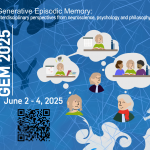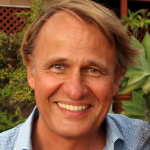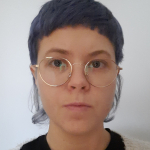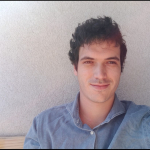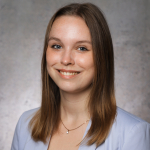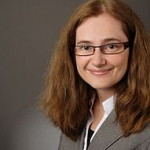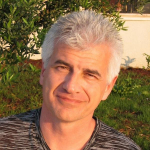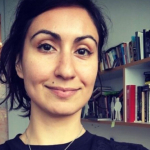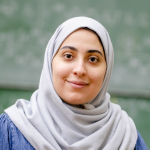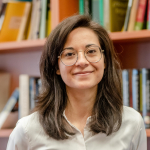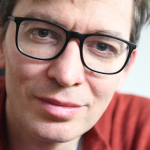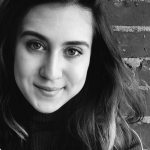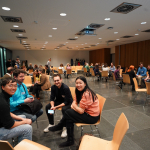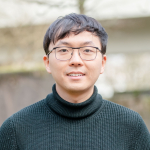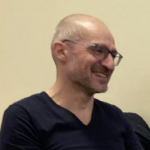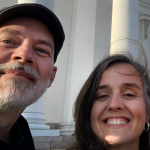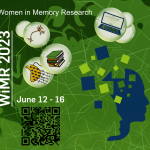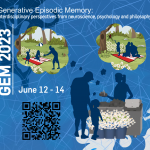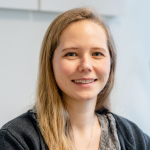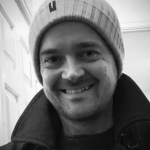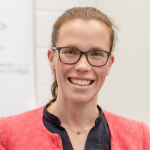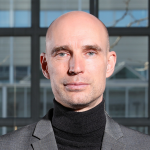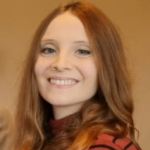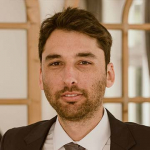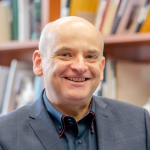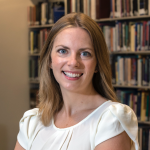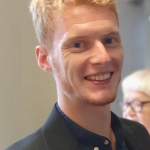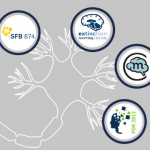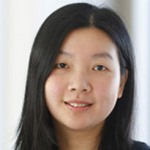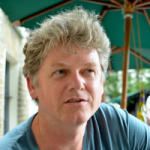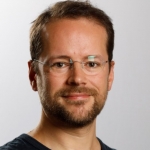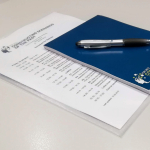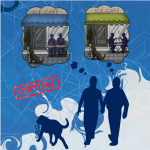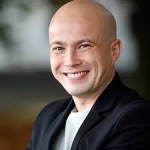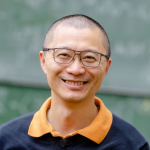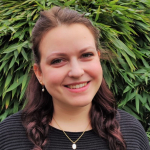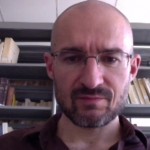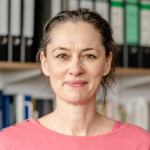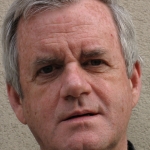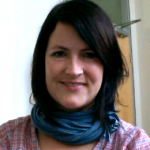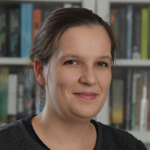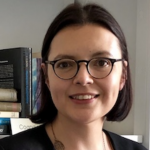12:30 PM
Ruhr University Bochum, Conference center
GEM 2025 - Generative Episodic Memory: Interdisciplinary perspectives from neuroscience, psychology and philosophy
Episodic memories are widely regarded as memories of personally experienced events. Early concepts about episodic memory were based on the storage model, according to which experiential content is preserved in memory and later retrieved. However, overwhelming empirical evidence suggests that the content of episodic memory is – at least to a certain degree – constructed in the act of remembering. Even though very few contemporary researchers would oppose this view of episodic memory as a generative process, it has not become the standard paradigm of empirical memory research. This is particularly true for studies of the neural correlates of episodic memory. Further hindering progress are large conceptual differences regarding episodic memory across different fields, such as neuroscience, philosophy, and psychology. This interdisciplinary conference therefore aims to bring together researchers from all relevant fields to advance the state of the art in the research on generative episodic memory.
https://for2812.rub.de/gem2025
From 1:00 PM on 2.06.25 to 1:30 PM on 4.06.25Venue: Ruhr University Bochum, Conference center
Hosted by Prof. Dr. Sen Cheng
2:00 PM
per Zoom
The Ethics of Engrams
Sven Bernecker University of Cologne
Abstract: The moral status of an action usually depends on more details than one can easily remember. This generates a dilemma. If one manages to remember all the relevant details, it may be, in part, a matter of luck; and if one forgets some essential details, it is not entirely within one’s control. In either case, an important degree of praise and blame seems unjustified, and the agent cannot be held fully responsible for their action. The chapter brings together two often-separated themes: the moral significance of remembering and forgetting and the role memory plays in retaining and advancing moral knowledge. Along the way, the survey lecture discusses the morality of memory modification, the relation between forgetting and forgiving, the memory of moral facts and principles, exculpating moral ignorance due to forgetting, and the punishment of amnesiacs.
Zoom link:
https://ruhr-uni-bochum.zoom-x.de/j/62794861352?pwd=ssOZhOL2bhEIUEzyD7Hj9lrBVlzz78.1
[Meeting ID: 627 9486 1352; Passcode: 569911]
On 24.01.25 at 2:00 PMVenue: per Zoom
2:00 PM
GA 04/187, Ruhr University Bochum
An episodicity score for free recall data? Interdisciplinary Perspectives
Abstract: The way we talk about our memories reveals information about the kind of remembering and its object. Many neuroscientific and behavioral studies therefore collect free recall data in addition to their main data. One of the ideas that motivated P10 was that from constructions like “remember swimming” in opposition to “remember that I swam” we can conclude whether participants remember episodes from their own life or mere semantic facts. This would be especially relevant when investigating the remembering of events that occurred long before collecting data in the controlled environment of the psychological experiment.
After six online studies and a formal linguistic analysis, almost all of our hypotheses have been confirmed, but the status of “episodicity markers” is still unclear for methodological and philosophical reasons. In this talk, I will give (against the background of our experimental and philosophical work) an overview of our work in P10, while focusing on the applicability for the other projects in the FOR2812. Specifically, I will investigate the idea of an “episodicity score” that could tell us for a given piece of free recall data “how episodic” the corresponding memory is.
I argue that there is no episodicity score that is not either (A) at the same time a score of vividness in imagination or (B) a score of epistemic authority (i.e. a measure of how reliable speakers judge the rememberer’s memory system). (A) is the case for all markers in the complement clause (like “how I swam” versus “that I swam”) that we have confirmed. Supported by findings of our cooperation with P1, we conclude that these should rather be termed “vividness markers”. (B) The matrix verb (e.g. “remembering”) itself, on the other hand, relates more to meta-cognition than to the memory system as investigated by many projects, and should be treated with extra caution due to two factors (preliminarily supported by our cooperation with P8): (i) The event of telling a memory itself plays a role in consolidation and meta-assessment of one’s memory; and (ii) the verb “remembering” requires pragmatic motivation: Why stress that we remember, if we only want to communicate what happened? Contexts involving doubt therefore license more uses of “remember”, superficially contradicting the idea that how we talk about mental states maps to these states (“semantic ascent”).
Zoom link:
https://ruhr-uni-bochum.zoom-x.de/j/62794861352?pwd=ssOZhOL2bhEIUEzyD7Hj9lrBVlzz78.1
[Meeting ID: 627 9486 1352; Passcode: 569911]
On 10.01.25 at 2:00 PMVenue: GA 04/187, Ruhr University Bochum
2:00 PM
Closed Event
Venue: GA 04/187, Ruhr University Bochum
2:00 PM
Closed Event
Venue: NB 3/57, Ruhr University Bochum
1:00 PM
University Münster - FL30
Memory modification vs. stability - fMRI results on episodic prediction error strength and type
Together with Marius Boeltzig, M.Sc.
Abstract:
Episodic memories can be employed by the brain to make predictions about what is going to happen next. If such predictions are wrong, they result in prediction errors, which are associated with different memory outcomes. In two studies, we investigated the effects of prediction error size and prediction error type on new episodic encoding, as well as on weakening of the memory underlying the unsuccessful prediction. We found that after stronger PEs, which affected the overall gist of the episode, the original memory was retained, while a new episode was also encoded, reflected in activations within the episodic memory network including the hippocampus. Representational changes indicate that pattern separation may allow the two similar memory traces to co-exist. Medium PEs, in contrast, weakened the original memory trace, which was accompanied by activation in the parahippocampal complex. Our findings have implications for theories of memory updating after prediction errors and extend previous findings into a social and individually relevant domain.
Zoom link:
https://ruhr-uni-bochum.zoom-x.de/j/62794861352?pwd=ssOZhOL2bhEIUEzyD7Hj9lrBVlzz78.1
[Meeting ID: 627 9486 1352; Passcode: 569911]
On 22.11.24 at 1:00 PMVenue: University Münster - FL30
2:15 PM
University Münster - FL30
Connecting minds: The development of shared memories in social groups
Magdalena Abel The University of Technology Nuremberg | UTN
Zoom link:
https://ruhr-uni-bochum.zoom-x.de/j/62794861352?pwd=ssOZhOL2bhEIUEzyD7Hj9lrBVlzz78.1
[Meeting ID: 627 9486 1352; Passcode: 569911]
On 22.11.24 at 2:15 PMVenue: University Münster - FL30
2:00 PM
NB 3/57, Ruhr University Bochum
Naturalistic paradigms to model emotional memory modification
Renée Visser University of Amsterdam
The last two decades of neuroscientific research have produced many new insights on the dynamic nature of memory. This research is highly relevant for clinical science as it helps us understand how aversive experiences transform to memories, how these memories give rise to symptoms such as intrusive reliving and heightened arousal, and how these memories may be modified during retrieval. However, most of this research has focused on modelling simple associative fears or appetitive memories in animals or healthy individuals; a direct translation of this research to rich autobiographical memories is not straightforward.
In this talk, I will present recent work from our lab that employs novel experimental paradigms to model and modify various aspects of emotional episodic memory. I will discuss the challenges of balancing experimental control with ecological validity yet argue that such paradigms are crucial - not only for bridging the gap between basic memory science and clinical research, but also for providing insight into a core consequence of autobiographical memory: how it shapes our sense of self.
Zoom link:
https://ruhr-uni-bochum.zoom-x.de/j/62794861352?pwd=ssOZhOL2bhEIUEzyD7Hj9lrBVlzz78.1
[Meeting ID: 627 9486 1352; Passcode: 569911]
On 8.11.24 at 2:00 PMVenue: NB 3/57, Ruhr University Bochum
2:00 PM
NB 3/57, Ruhr University Bochum
The probabilistic nature of coding and using structured episodic memories
Jozsef Fiser Central European University
Accumulating behavioral and neural evidence suggests that incoming sensory input is represented and combined with generalized semantic knowledge in a fundamentally
probabilistic way during perceptual processes in the brain. Meanwhile, episodic memories are traditionally treated outside of this perceptual context despite the fact that semantic memories must emerge from episodes experienced earlier by the observer and that episodic memory is a significant part of the internal representation. Hence, it is not even known if episodic memories are also treated probabilistically, that is, whether they are encoded together with their uncertainty just as immediate sensory information is. To fill this gap, I will present a series of behavioural studies exploring the extent to which episodic memory pocesses characteristics of probabilistic coding. First, I will demonstrate that encoding of episodic memories are well-calibrated that is, they are recalled later from long-term memory together with their subjective uncertainty, indicating a probabilistic representation of memory details. Second, I will show how the encoding of a feature of episodic memory is systematically biased by the summary statistics of the feature that are also automatically extracted and stored during exposure. Third, I will present evidence about how instantaneous image configurations and semantic background in trials influences memory encoding. The results suggest that encoding and recall of long-term episodic memories follow the same probabilistic principles as perception. As a concequence, momentary perceptual input, semantic knowledge and individual episodic memory traces can be treated and combined in a fundamentally uniform manner in the brain.
Zoom link:
https://ruhr-uni-bochum.zoom-x.de/j/62794861352?pwd=ssOZhOL2bhEIUEzyD7Hj9lrBVlzz78.1
[Meeting ID: 627 9486 1352; Passcode: 569911]
On 25.10.24 at 2:00 PMVenue: NB 3/57, Ruhr University Bochum
2:00 PM
Virtual via Zoom
Predictive Memory Structures in Brains and AI
Ida Momennejad Microsoft
Memory and planning rely on learning the relational structure of experience. I'll talk about research where we combined reinforcement learning (RL) with behavioral, fMRI, and electrophysiology experiments to study how human brains learn and store multiscale predictive representations (or cognitive maps), and how the structure of these representations enables multi-step prediction, reasoning, and planning. We showed that memory and planning may rely on hippocampal and prefrontal hierarchies that learn multi-scale predictive representations updated via offline replay. I'll wrap up with application of similar approaches to generative AI. If time allows, this includes work on evaluating cognitive maps and multi-step reasoning and planning in 8 large language models (LLMs), evaluating representational changes due to in-context-learning and their effect on improvement of behavior, and building brain-inspired multi-agent architectures using GPT-4 with improved reasoning and planning abilities.
Zoom link:
https://ruhr-uni-bochum.zoom.us/j/63665759097?pwd=TVZXTFB0U2pnWFhDVTI4R004Ym45dz09
On 19.07.24 at 2:00 PMVenue: Virtual via Zoom
2:00 PM
Closed Event
Venue: NB 3/57, Ruhr University Bochum
2:00 PM
Closed Event
Venue: Virtual via Zoom
2:00 PM
per Zoom
Enhancing Real-World Memory: A Smartphone Intervention that Promotes Differentiation of Hippocampal Activity in Older Adults
Morgan Barense University of Toronto
The act of remembering an everyday experience influences how we interpret the world, how we think about the future, and how we perceive ourselves. It also enhances long-term retention of the recalled content, increasing the likelihood that it will be recalled again. Unfortunately, the ability to recollect event-specific details tends to decline with age, resulting in an impoverished ability to mentally re-experience the past. This shift has been linked to a corresponding decline in the distinctiveness of hippocampal memory representations. Despite these well-established changes, there are few effective cognitive behavioral interventions that target real-world episodic memory. We addressed this gap by developing a smartphone-based application called HippoCamera that allows participants to record labelled videos of everyday events and subsequently replay standardized, high-fidelity autobiographical memory cues. In two experiments with older adults, we found that using HippoCamera to repeatedly reactivate memories for real-world events improved episodic recollection and it evoked more positive autobiographical sentiment at the time of retrieval. Moreover, more detailed recollection was associated with more differentiated memory signals in the hippocampus. In a third experiment, we used HippoCamera to promote engagement in unique events for individuals experiencing social isolation during COVID lockdowns. We found that unique events were not only recalled in richer episodic detail, but that increased uniqueness was associated with greater positive affect, decreased boredom, and the perception of time passing faster for the entire day. These findings highlight the intimate connection between memory for the events of our lives and our well-being overall.
Zoom link:
https://ruhr-uni-bochum.zoom.us/j/63665759097?pwd=TVZXTFB0U2pnWFhDVTI4R004Ym45dz09
On 7.06.24 at 2:00 PMVenue: per Zoom
2:00 PM
IC 04/440, Ruhr University Bochum
Normative theories of two-way interactions between episodic and semantic memories.
Gergo Orban Computational Systems Neuroscience Lab, Wigner Institute
Abstract: Acquiring internal models of the natural environment is central to efficient perception, and subsequent decisions. Generative models have been proposed as a normative framework to characterise these internal models. In this talk I will elaborate on a pair of complementary computational challenges when we consider internal models as the semantic knowledge we store about our experiences. First, I will consider how this internal model might support encoding specific experiences, also referred to as episodic memories. I argue that the internal model can be tightly linked to the normative theory of lossy compression, called rate distortion theory. Using tools borrowed from machine learning, deep generative models, I demonstrate that rate distortion theory can account for a wide range of memory distortions from domains as diverse as hand drawings, board games, and language memory. Second, I will discuss how episodic memory can provide support to updating the internal model. We highlight that Bayesian learning of internal models requires that alternative potential internal models are maintained in parallel for optimal acquisition of the internal model with the right structure. We show how an extension of Bayesian learning leads to the requirement of an episodic memory system. We show that this episodic memory-supported form of learning accounts for aspects of curriculum-dependence of learning in humans.
We encourage you to attend this event in person. However, if you are unable to you may join us via Zoom.
Zoom link:
https://ruhr-uni-bochum.zoom.us/j/66791527694?pwd=UDZuaytKa0EzUzI1MXV4VjVia29rdz09
On 24.05.24 at 2:00 PMVenue: IC 04/440, Ruhr University Bochum
2:00 PM
per Zoom
Episodic memory and counterfactual causal reasoning
Abstract: Over the past several years, there has been a shift in the researchers’ thinking about the functional role of episodic memory. Rather than focusing on how memory represents the past, recent literature often presents memory as ultimately dealing with the future–helping the organism to anticipate events and increase its adaptive success. However, the distinct contribution of episodic (as opposed to semantic) memory to future-oriented simulations remains unclear. We claim that episodic memory yields adaptive success because of its crucial role in singular counterfactual causal reasoning, which thus far has been mostly ignored in causal reasoning literature. Our paper presents a causal inference model based on the predictive processing framework and the minimal trace account of episodic memory. According to our model, evaluating the cause of an event involves (i) generating an episodic memory related to the said potential cause, (ii) constructing a counterfactual scenario through inhibition of the relevant part of the past episode, and (iii) temporal evolution followed by alternative model evaluation. We further discuss our approach in the developmental context.
Zoom link:
https://ruhr-uni-bochum.zoom.us/j/63665759097?pwd=TVZXTFB0U2pnWFhDVTI4R004Ym45dz09
On 26.04.24 at 2:00 PMVenue: per Zoom
12:30 PM
Fenster des Wissenschaft, CCM – CCO, Berlin
Girls' Day 2024
We are excited to announce our third annual Girls' Day event organized by the SFB 1315 "Mechanisms and Disturbances in Memory Consolidation" in Berlin, in collaboration with the FOR 2812 and SFB 1280 in Bochum. This year Girls' day will be held in person in Berlin with Emil Rosina from project P10 joining the girls to talk about their experience as a researcher and PhD student. More information about the event can be found on the SFB 1315 website at https://www.sfb1315.de/outreach/girlsday-2024/.
Registration closes 19.04.2024
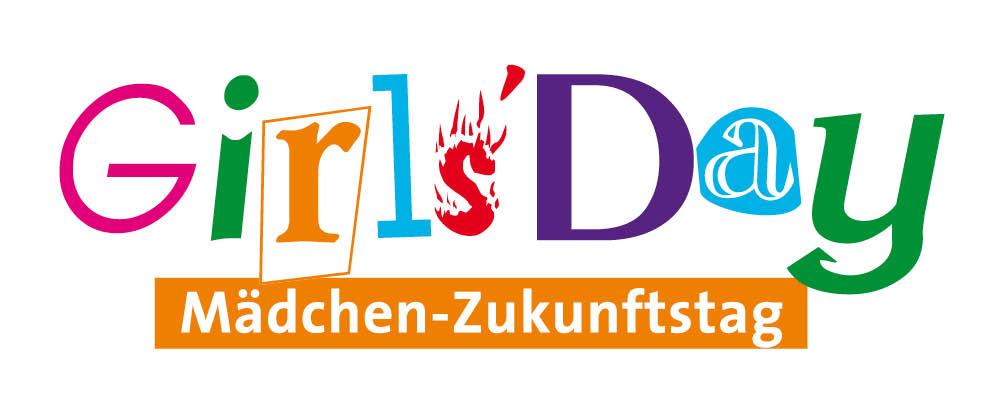
Venue: Fenster des Wissenschaft, CCM – CCO, Berlin
12:30 PM
Closed Event
Venue: Conference Center, Ruhr University Bochum
Hosted by Prof. Dr. Sen Cheng
2:00 PM
per Zoom
Plasticity of brain resilience mechanisms
Pierre Gagnepain INSERM-EPHE-UNICAEN
Abstract: The expression and persistence of vivid and distressing intrusive memories, is a central feature of Post-Traumatic Stress Disorder (PTSD). It remains largely unknown why these traumatic memories persist in some individuals, and fade away in others. Current understanding of PTSD links this persistence to the disruption of memory functions involved in the formation and updating of the memory trace, a deficit rooted in the alteration of hippocampal structural integrity. During this talk, I will present an alternative (and complementary) hypothesis, rooted in the idea that the variation across individuals in the response to trauma may additionally depend on the disruption of the brain system that normally allows the inhibitory control over memory, a central mechanism of active forgetting (Mary et al., Science, 2020). After introducing the neural bases of memory inhibition and how this mechanism could be integrated with current models of resilience to trauma and PTSD, I will then present the findings of a longitudinal neuroimaging study realized in a cohort of 120 individuals exposed to the 11/13 Paris terrorist attacks. This research program is centered on the Think/No-Think task developed to study the suppression of intrusive memories, but also includes MRI sequences to delineate hippocampal subfields at high-resolution, providing a unique opportunity to observe the structural and functional plasticity in memory and control circuits following a severe psychological trauma.
Zoom link:
https://ruhr-uni-bochum.zoom.us/j/63665759097?pwd=TVZXTFB0U2pnWFhDVTI4R004Ym45dz09
On 12.04.24 at 2:00 PMVenue: per Zoom
11:00 AM
IA 02/445, Ruhr University Bochum
Closed loop brain stimulation for modulating human memory
Michael Kahana University of Pennsylvania
Abstract: Closed-loop direct brain stimulation has emerged as a promising tool for modulating neural activity and behavior. However, the space of stimulation parameters is immense and in most cases stimulation will impair rather than improve cognitive processes. I will describe a program of research to explore whether we can use the state of the brain to guide the delivery of stimulation to achieve therapeutic benefit for patients. The first insight is the recognition that cognitive abilities vary over time and that we can use neural signals to decode that variability. Second, we ask whether models that can use neural features to predict mnemonic performance can be used to optimize the timing of stimulation. Third, I will discuss how such models could also be used to optimize stimulation location and other parameters. Finally, I will discuss how similar approaches may potentially be used to target other cognitive functions.
We encourage you to attend this event in person. However, if you are unable to you may join us via Zoom.
Zoom link: https://ruhr-uni-bochum.zoom.us/j/66791527694?pwd=UDZuaytKa0EzUzI1MXV4VjVia29rdz09
On 16.02.24 at 11:00 AMVenue: IA 02/445, Ruhr University Bochum
2:00 PM
Virtual via Zoom
A Neural network model that learns to encode and retrieve memories in spatial navigation
Numerous models of episodic memory have been developed based on machine learning that incorporate varying levels of biological details. What is common to almost all of them is that they employ pre-defined and rigid mechanisms for the encoding and retrieval of memories. Usually, a pre-determined type of information is stored at each timestep regardless of whether anything interesting has happened. Currently, we are investigating a model based on a Memory-Augmented Neural Network, where an artificial neural network learns autonomously what and when to store into, and retrieve from, an external, network-based memory buffer, while solving a navigation task in a simulated maze. Once the model successfully solves the task, we examine how it uses its memory and find that it learns to store a large amount of information in the buffer when it reaches a goal location that varies across the session, and suppresses memory writing afterwards to prevent the interference of new and old information. Intriguingly, although the model receives only camera images as external inputs, the information encoded in memory reflects the 2D structure of the maze. Even more surprising is that the outcome of memory retrieval already contains information about what the model should do next. We believe that it is the structure of the spatial task that moulds the encoding and retrieval strategy that the agent learns, and different tasks would eventually lead to different patterns of memory usage.
Please note that this event is not a colloquium talk. A short presentation of current research will be followed by an interactive discussion. This event has been moved to virtual space. Please join us via zoom.
Zoom link:
https://ruhr-uni-bochum.zoom.us/j/66791527694?pwd=UDZuaytKa0EzUzI1MXV4VjVia29rdz09
On 2.02.24 at 2:00 PMVenue: Virtual via Zoom
2:00 PM
Closed Event
Venue: Virtual via Zoom
2:00 PM
IB 4/115, Ruhr University Bochum
Making a case for authenticism about accuracy conditions of episodic memory
Denis Perrin Université Grenoble Alpes
What are the accuracy conditions of episodic memories? On a standard view introduced by Bernecker (2010), an episodic memory is accurate if it is so not only with regard to the remembered event—these are its truth-conditions—but also with regard to the remembered experience of this event—these are its authenticity conditions. Recently, however, this standard authenticist view has been put under pressure by theorists who claim that the authenticity condition is not amongst the accuracy conditions of episodic memories (Michaelian & Sant'Anna 2022, Michaelian forthcoming, Sant'Anna forthcoming). In this talk, I provide a moderate reply to this recent anti-authenticist trend, claiming that the authenticity condition can be an accuracy condition for our memories. To vindicate this claim, I contribute both to the authenticity debate, by showing that recent anti-authenticist arguments fail, and to the delineation debate, by arguing that the content of episodic memories is delineated in a context-sensitive way and thereby motivating the moderate character of my authenticism.
We encourage you to attend this event in person. However, if you are unable to you may join us via Zoom.
Zoom link: https://ruhr-uni-bochum.zoom.us/j/66791527694?pwd=UDZuaytKa0EzUzI1MXV4VjVia29rdz09
On 12.01.24 at 2:00 PMVenue: IB 4/115, Ruhr University Bochum
12:15 PM
University of Münster, Fliednerstr. 21, room FL216a
Audience-tuning effects on communicators' memory: The role of the communicator's own initial judgement
In the "saying-is-believing“ (SIB) effect (Higgins & Rholes, 1978; Echterhoff et al., 2005), episodic memory retrieval of a communicator is biased in the service of shared reality creation with his/her audience. Specifically, memory of behaviors of a target person is evaluatively biased in the direction of a communication partner (audience) who allegedly likes or dislikes the target person. The extent of this memory bias (recall tuning) depends on the degree of the communicator’s epistemic trust in and perceived shared reality with the audience. What remains unknown so far from all previous SIB studies is in how far the effect depends on the communicator’s own initial judgment about the target person (judgment of the communicator, JC). We present three new studies that adress this issue, first asking participants in the SIB paradigm for their own judgment of the target person before they receive informatioon of their audience’s attitude toward the target. Across studies, results indicate that the SIB effect does not essentially depend on JC. Overall, recall valence was predominantly determined by JC, but it was still additionally adjusted, depending on whether the audience’s attitude was positive or negative. The extent of this adjustment (SIB effect) was comparable when the communicator’s initial judgment was positive, negative, or neutral. In all three studies, we also examined the role of confidence in JC as a possible determinant of audience attitude effects. Confidence was generally remarkably high and turned out to be difficult to be modified by experimental manipulations. There was also no substantial correlation between confidence and audience attitude effects.
We encourage you to attend this event in person. However, if you are unable to you may join us via Zoom.
Zoom link: https://ruhr-uni-bochum.zoom.us/j/66791527694?pwd=UDZuaytKa0EzUzI1MXV4VjVia29rdz09
On 1.12.23 at 12:15 PMVenue: University of Münster, Fliednerstr. 21, room FL216a
2:00 PM
University of Münster, Fliednerstr. 21, room FL216a
Temporal dynamics of episodic memory
Inês Bramao & Mikael Johansson Lund University
Episodic memory enables us to mentally travel to relive specific, personally experienced events tied in time and place. This feat of human memory depends on the reinstatement of the cortical patterns that were active during the original event. In this talk, we will present our lab's recent work on the timing of how event-specific content is combined during the unfolding of an event and then reinstated during episodic remembering. The first part of our presentation will focus on using EEG data and multivariate pattern analysis to decode memory contents, and it will shed light on retrieval competition and memory integration. In the second part, we will present data indicating a functional role of eye movements in memory: they help bind event details during encoding and facilitate reconstructing past events during retrieval. Together these approaches bring new light on the temporal dynamics of episodic encoding and retrieval mechanisms.
We encourage you to attend this event in person. However, if you are unable to you may join us via Zoom.
Zoom link: https://ruhr-uni-bochum.zoom.us/j/66791527694?pwd=UDZuaytKa0EzUzI1MXV4VjVia29rdz09
On 1.12.23 at 2:00 PMVenue: University of Münster, Fliednerstr. 21, room FL216a
2:15 PM
NB3/57, Ruhr University Bochum
Episodic memory and context: unifying approaches across animals and humans
Alex Easton Durham University
Please note that there is a change in venue due to technical difficulties. The new room is NB3/57
This talk is held in collaboration with the Center for Mind and Cognition - Ruhr University Bochum
Abstract:
Episodic memory has been demonstrated in non-human animals through memories for what happened, where it happened and either when it happened, or on which occasion it happened. The broader use of ‘context’, rather than time alone, appears more sensitive to ageing and Alzheimer’s pathology in rodents, whilst In humans it increases the use of a recollection strategy. The use of these simple, recognition or recollection tasks of episodic memory also allows direct comparisons of the same task in humans and non-human animals, removing confounds of language that have typically limited the study of episodic memory.
We encourage you to attend this event in person. However, if you are unable to you may join us via Zoom.
Zoom link: https://ruhr-uni-bochum.zoom.us/j/66791527694?pwd=UDZuaytKa0EzUzI1MXV4VjVia29rdz09
On 24.11.23 at 2:15 PMVenue: NB3/57, Ruhr University Bochum
2:00 PM
Zoom
Empirical evidence for episodicity markers in memory reports
The distinction between episodic and semantic memory has received a lot of attention in cognitive science and philosophy recently, but very little in linguistics. In P10 of the FOR, we are looking for empirical evidence for reflexes of the two kinds of remembering in natural language. I am conducting the first broad empirical investigation of the question whether speakers use different kinds of constructions (sentences, phrases, words) when reporting recalling episodes of their own life as compared to remembering facts. At the talk, I am going to present the experimental design that we use looking for these “episodicity markers” in the form of a demo version of our online questionnaire plus the background setup of our series of studies. This talk is also going to be the first presentation of results from three pilot studies in two different formats (Likert Scale and Forced Choice Speaker-ID) and two different languages (English and German) concerning minimal pairs of sentences like the following two examples from our studies:
-
- I remember that Grandma was robbed
- I remember Grandma being robbed.
-
- Ich weiß noch, dass Oma im Meer geschwommen ist. (‘I remember that Grandma was swimming in the sea.’)
- Ich weiß noch, wie Oma im Meer geschwommen ist. (‘I remember how Grandma was swimming in the sea.’)
Our hypothesis is that the a-sentences can be used in both episodic and semantic memory scenarios, but the b-sentences can only be used in episodic memory scenarios. Depending of time and on your focus of interest, I will also be prepared to talk about the theoretical implications of the results, both for a linguistic model of these constructions and for other disciplines investigating episodic memory.
This talk has been moved to virtual space. Please join us on Zoom.
Zoom link: https://ruhr-uni-bochum.zoom.us/j/66791527694?pwd=UDZuaytKa0EzUzI1MXV4VjVia29rdz09
On 17.11.23 at 2:00 PMVenue: Zoom
12:30 PM
Ruhr University Bochum, Conference center
Women in Memory Research 2023
Early research excellence must exist within the context of inclusivity. Although comprising only a small percentage (21%-29% in Germany), women contribute greatly to ongoing efforts in memory research. This event hopes to help you enhance both personal and professional development and learn additional skills. It aims to entice you to stay your path and enjoy the benfits of an academic career.
Come and learn what an academic career looks like and discover its advantages. During your week at the Ruhr University Bochum (RUB) you will participate in GEM 2023 where you will hear about the latest research in generative episodic memory, be given the opportunity to present your research and meet with female scientists from the field. Before and after GEM you'll be introduced to Bochum, the RUB and the FOR 2812 labs.
https://for2812.rub.de/wimr2023
From 9:00 AM on 12.06.23 to 12:30 PM on 16.06.23Venue: Ruhr University Bochum, Conference center
Hosted by Prof. Dr. Sen Cheng
12:30 PM
Ruhr University Bochum, Conference center
GEM 2023 - Generative Episodic Memory: Interdisciplinary perspectives from neuroscience, psychology and philosophy
Episodic memories are widely regarded as memories of personally experienced events. Early concepts about episodic memory were based on the storage model, according to which experiential content is preserved in memory and later retrieved. However, overwhelming empirical evidence suggests that the content of episodic memory is – at least to a certain degree – constructed in the act of remembering. Even though very few contemporary researchers would oppose this view of episodic memory as a generative process, it has not become the standard paradigm of empirical memory research. This is particularly true for studies of the neural correlates of episodic memory. Further hindering progress are large conceptual differences regarding episodic memory across different fields, such as neuroscience, philosophy, and psychology. This interdisciplinary conference therefore aims to bring together researchers from all relevant fields to advance the state of the art in the research on generative episodic memory.
https://for2812.rub.de/gem2023
From 1:00 PM on 12.06.23 to 1:30 PM on 14.06.23Venue: Ruhr University Bochum, Conference center
Hosted by Prof. Dr. Sen Cheng
12:30 PM
per Zoom
Girls' day 2023
Please join us for our second annual Girls' Day event, which is hosted by SFB 1315 with help of SFB 1280 and FOR 2812.
Aim: each session hosts a scentist (and short film where available) who speaks about their CV and project work in their respective project in Berlin or Bochum. We hope you are inspired and that we meet you again soon in a short internship in one of our projects!
Visit https://www.sfb1315.de/events/girlsday-digital-2023/ for more details.
On 27.04.23 at 12:30 PMVenue: per Zoom
2:00 PM
Closed Event
Marcella Woud Ruhr University Bochum
Venue: GA 04/187, Ruhr University Bochum
2:00 PM
Closed Event
Venue: GA 04/187, Ruhr University Bochum
2:00 PM
GA 04/187, Ruhr University Bochum
Plus ca change - homeostasis and visually driven transitions in place cells
Caswell Barry University College London
Abstract:
The hippocampus occupies a central role in mammalian navigation and memory. Yet an understanding of the rules that govern the statistics and granularity of the spatial code, as well as its interactions with perceptual stimuli, is lacking. We analyzed CA1 place cell activity recorded while rats foraged in different large-scale environments. We
found that place cell activity was subject to an unexpected but precise homeostasis-the distribution of activity in the population as a whole being constant at all locations within and between environments. Using a virtual reconstruction of the largest environment, we showed that the rate of transition through this statistically stable population matches the rate of change in the animals' visual scene. Thus, place fields near boundaries were small but numerous, while in the environment's interior, they were larger but more dispersed. These results indicate that hippocampal spatial activity is governed by a small number of simple laws and, in particular, suggest the presence of an information-theoretic bound imposed by perception on the fidelity of the spatial memory system. Further, if there is time, I will also present some of our work using deep network based tools to detect and analyse electrophysiological data.
Zoom link:
https://ruhr-uni-bochum.zoom.us/j/63985884381?pwd=WndWYnJPRkVHR0EyTUNoRHpYNGI2Zz09
Meeting ID: 639 8588 4381
Passcode: 445997
Venue: GA 04/187, Ruhr University Bochum
2:00 PM
GA 04/187, Ruhr University Bochum
Reporting episodic remembering and experiential imagining
Episodic recall distinguishes itself from recall of semantic information through its phenomenological properties (e.g., mental imagery, experience-likeness, emotionality, perspectivity). The variety of these properties notwithstanding, much psychological work on memory and language has limited itself to a particular aspect of mental imagery, viz. descriptive detail (see Addis et al., 2008; St. Jacques & Levine, 2007; Le, 2020). My talk seeks to compensate for this shortcoming. Based on recent work in the philosophy of language and linguistics, I will propose a variety of linguistic markers for phenomenological properties of episodic recall (to be tested in the experimental part of project P10). These markers include present tense, experiential modifiers (lebhaft), expressives (brrr, autsch), and particular grammatical constructions (daran, wie ...). They are used in overt and covert memory reports (with and without the verb remember), and can be found at different levels of linguistic analysis (e.g., morphology, syntax, the lexicon, pragmatics). I observe that, while the majority of these markers occurs in episodic memory and experiential imagination reports alike (thus supporting continuism about memory and mental time travel), some markers are specific to reports of episodic memory. I propose to use these markers in the analysis, e.g., of autobiographical memory reports.
Zoom link:
https://ruhr-uni-bochum.zoom.us/j/63985884381?pwd=WndWYnJPRkVHR0EyTUNoRHpYNGI2Zz09
Meeting ID: 639 8588 4381
Passcode: 445997
Venue: GA 04/187, Ruhr University Bochum
2:00 PM
GA 04/187, Ruhr University Bochum
Body, Self, Space: Consciousness and spatial navigation
Olaf Blanke EPFL, Switzerland
Although most classical work on the sense of self (or self-consciousness) has studied its cognitive components, recent studies defined a minimal perception-based form of self-consciousness that is based on the integration of exteroceptive bodily signals (i.e., bodily self-consciousness, BSC). BSC is based on the integrated and multisensory perception of tactile, proprioceptive, visual signals (as well as interoceptive signals) and has been studied in cognitive psychology, neuroscience, and in neurological patients (i.e., Park and Blanke, 2019). I will highlight a series of studies investigating two fundamental aspects of BSC, referred to as self location and self-identification with an individual’s body, and show that BSC is based on torso-centered signals in a distributed cortical network, centered in temporo-parietal and medial parietal cortex. In the final part of my presentation I will show that both BSC aspects are also of key importance in spatial navigation as well as grid-cell based calculations in entorhinal and retrosplenial cortex. Modulating BSC (by online manipulation of bodily signals) while participants performed a spatial navigation task during fMRI acquisition performance in spatial navigation was improved and grid cell-like representation (GCLR) in human entorhinal cortex decreased, likely mediated via retrosplenial cortex. In a related study, even purely illusory changes in self-location (without any spatial navigation and without any environmental changes) are sufficient to evoke entorhinal GCLR that correlate in strength with the magnitude of self-location, and have the same grid orientation as conventional spatial navigation. I will conclude by highlighting the relevance of BSC for spatial navigation and its representation in entorhinal and retrosplenial cortex, but also point out that both regions are important hubs for the sense of self in space and time.
Zoom link:
https://ruhr-uni-bochum.zoom.us/j/63985884381?pwd=WndWYnJPRkVHR0EyTUNoRHpYNGI2Zz09
Meeting ID: 639 8588 4381
Passcode: 445997
Venue: GA 04/187, Ruhr University Bochum
12:30 PM
Closed Event
Venue: WWU Münster, FL 30
2:00 PM
WWU Münster, Fliednerstr. 21, room FL30
Affective episodic simulation
Roland Benoit Max Planck Inst. for Cognition and Neuroscience, Leipzig
Our memory systems not only allow us to revisit the past. They also enable us to imagine potential episodes that we may experience in the future. In the first part of the presentation, I will highlight the common neural basis of these capacities, with a particular focus on the contribution of the medial prefrontal cortex (mPFC). I will also show how we learn from simulated experiences much like we do from actual experiences. Specifically, I will suggest that such simulation-based learning is governed by similar computational and neural processes. In the final part of the presentation, I will demonstrate how my lab uses episodic simulation to reveal the more general functional role of the mPFC. Specifically, I will try to resolve the apparent conundrum that this region is involved in seemingly disparate functions, in particular in mediating memory schemas and in the computation of value. Together, this presentation highlights adaptive processes involved in simulating our future and demonstrates how these simulations influence our models of the world.
Zoom link:
https://ruhr-uni-bochum.zoom.us/j/63985884381?pwd=WndWYnJPRkVHR0EyTUNoRHpYNGI2Zz09
Meeting ID: 639 8588 4381
Passcode: 445997
Venue: WWU Münster, Fliednerstr. 21, room FL30
4:15 PM
WWU Münster, Fliednerstr. 21, room FL216b
Intentional forgetting of unwanted memories
Roland Benoit Max Planck Inst. for Cognition and Neuroscience, Leipzig
Unpleasant experiences often turn into memories that involuntarily intrude into awareness. In this presentation, I will first highlight the neurocognitive mechanisms that allow us to intentionally suppress such unwanted memories. Notably, suppression has lingering after effects: it weakens the avoided memory and eventually causes forgetting. I will show recent evidence that this weakening is caused by a sustained disruption of the memories’ neural reinstatement. However, though suppression induces forgetting in healthy individuals, I will present meta-analytical evidence that it is deficient in individuals with emotional disorders that are characterized by intrusive thought. Finally, I will provide evidence that a mechanism that suppresses memories of the past can also be employed to control our fears of the future. Together, this presentation thus demonstrates that suppression causes forgetting, elucidates its
neural basis, and highlights its clinical relevance.
This talk is open to the public but prior registration is required. Please contact occ.info@uni-muenster.de for registration.
Please note that this is an in-person ONLY event and cannot be attended virtually.
On 3.11.22 at 4:15 PM
Venue: WWU Münster, Fliednerstr. 21, room FL216b
2:00 PM
GA 04/187, Ruhr University Bochum
Situating Trace Minimalism: the role of the protentional intentionality in episodic memory
Since the classic experiment of context-dependency in free recall by Godden and Baddely (1975), psychological studies have reliably found effects of bodily and environmental states in memory (Smith and Vela 2001): suggesting that the content and the accuracy of episodic memory depend on the situated conditions in which a subject remember. Considering such effects, I propose a situated version of Trace Minimalism (Werning 2020). Building upon an analogy with the predictive processing framework of perception, Trace Minimalism has described the content of constructed scenarios of the past as the result of a top-down prediction that receives an error signal from minimal memory traces. However, this theory has not considered the role of the environment and the body in the episodic reconstruction process. I provide an empirically-informed phenomenological analysis of - what I have called - “protentional intentionality” to account for such dependency. Drawing on the analogy with perception, I suggest that the protentional intentionality (a conative aspect that drives our interaction with the world) distributes meaning to the events and affects the emotional, agential and social salience of the constructed episodic scenarios of the past.
Zoom link:
https://ruhr-uni-bochum.zoom.us/j/63985884381?pwd=WndWYnJPRkVHR0EyTUNoRHpYNGI2Zz09
Meeting ID: 639 8588 4381
Passcode: 445997
Venue: GA 04/187, Ruhr University Bochum
2:00 PM
Closed Event
Venue: GA 04/187, Ruhr University Bochum
12:30 PM
Billerbeck, Germany
2022 - FOR 2812 Retreat
The third retreat of the research unit FOR2812 will take place on Sept. 22nd and 23rd 2022. We will discuss results from our research and plan GEM 2023. For us it is all about an interdisciplinary approach so we will focus on setting up collaborations between projects and developing new interdisciplinary ideas. We will also investigate future directions of the research unit.
From 9:00 AM on 22.09.22 to 5:00 PM on 23.09.22Venue: Billerbeck, Germany
2:00 PM
GA 04/187, Ruhr University Bochum
Attitude Parasitism and Two-Dimensional Semantics
Kyle Blumberg Australian Catholic University, Melbourne
Suppose Mary thinks that a thief stole her laptop, but in fact she just left it at the office. Then the following can easily be true: `Mary thinks that somebody robbed her, and she is imagining that the person who robbed her had never robbed anyone'. However, given standard assumptions about attitude content, it is difficult to specify what it is that Mary is imagining to be the case. It can't be that x never robbed anyone, for some individual x who actually robbed Mary, since there is no such individual. Also, it can't be that there exists a unique person who robbed Mary and every such person never robbed anyone, since this has Mary imagining something incoherent. I argue that cases such as Mary's show imaginings to be "dependent" or "parasitic" on a subject's beliefs: to even be able to state what Mary imagines, we need to look at what she believes. In this talk, I present a framework for modeling parasitic attitudes such as imagining that is two-dimensional. I consider various implementations of this approach, as well as possible applications of the framework to an even broader class of states, for example episodic remembering. I end by discussing some areas for future research.
This talk will be given in person however you may also join virtually
Zoom link:
https://ruhr-uni-bochum.zoom.us/j/66419012771?pwd=SWc0dG55SUNTcStyVTVIR09KZE94UT09
Meeting ID: 664 1901 2771
Passcode: 118467
On 24.08.22 at 2:00 PMVenue: GA 04/187, Ruhr University Bochum
2:00 PM
via video conference
“That’s not me anymore!” – Felt connections, multimodal perspectivity and multifaceted selves in episodic memory
People may commonly compare themselves to previous selves. During such a comparison you may feel connected to your previous self in various ways. For instance, you may feel more connected to your teenage self when recalling prom night, but less connected to yourself when recalling an awkward conversation with a colleague just last week. In this talk I will argue that in order to fully grasp the complex phenomenology of episodic memory, and in particular this aspect of ‘felt connections’, we must adopt a conceptualization of the self in memory as being multifaceted. The talk has three parts. First, I will discuss empirical data on another aspect of memory phenomenology, namely visual perspectivity. I will show that making sense of these data requires us to broaden the self at stake. Second, I will argue that to elucidate ‘felt connections’ in memory phenomenology, we need to broaden the self even further. For this I will draw on recent insights from ‘4E cognition’ research and underscore the importance of other modalities (aside from the visual modality). Third, I will discuss the implications of this re-conceptualization of the self for understanding the different functionalities of the self-memory system, in particular the ‘distancing’ and ‘integrative’ stances that an individual may take towards their memories.
This talk will be virtual.
Zoom link:
https://ruhr-uni-bochum.zoom.us/j/66419012771?pwd=SWc0dG55SUNTcStyVTVIR09KZE94UT09
Meeting ID: 664 1901 2771
Passcode: 118467
On 15.07.22 at 2:00 PMVenue: via video conference
2:00 PM
GA 04/187, Ruhr University Bochum
Episodic and vicarious memories – a difference in kind?
Format: Hybrid
According to a widely held convention, episodic memories are taken to be memories of events from one’s personal past, experienced with one’s own senses. Moreover, according to a widespread taxonomy in psychology and philosophy, episodic memories are classified as a kind of memory in its own right. The present talk challenges those assumptions and investigates whether there are any distinctive differences in kind between episodic and so-called vicarious memories – i.e., memories based on lively reports of familiar people and not necessarily of events from one’s personal past. The talk approaches this issue along five dimensions: (i) Biological naturalism, according to which a “natural kind” is the maximal class whose members are likely to share their relevant explanatory, inductive, and causal-interventionist properties because of some uniform underlying causal mechanism. (ii) Epistemology, where episodic memory as a privileged source of knowledge is at issue. (iii) Language use regarding the verb “remember”; as well as (iv) phenomenology and (v) personal identity.
Zoom link:
https://ruhr-uni-bochum.zoom.us/j/66419012771?pwd=SWc0dG55SUNTcStyVTVIR09KZE94UT09
Meeting ID: 664 1901 2771
Passcode: 118467
On 24.06.22 at 2:00 PM
Venue: GA 04/187, Ruhr University Bochum
2:00 PM
per Zoom
Making memories: The role of brain networks in filtering and reconstructing past experience
Maureen Ritchey Boston University
Format: Virtual
Memories are not identical reproductions of past experience, but rather a filtered and reconstructed version of what actually happened. In this talk, I will discuss the role of hippocampal and cortical network interactions in transforming experience into memory. I will present evidence that this transformation process begins at encoding, as event details are prioritized and bound through medial temporal lobe interactions. As memories are retrieved, these details are reconstructed through cortico-hippocampal networks that mediate the experience of recollection. Together, these results highlight the utility of network approaches for characterizing the complexity of multidimensional episodic representations.
This talk will be virtual with Maureen Ritchey joining us via video conference from the USA.
Zoom link:
https://ruhr-uni-bochum.zoom.us/j/66419012771?pwd=SWc0dG55SUNTcStyVTVIR09KZE94UT09
On 3.06.22 at 2:00 PMVenue: per Zoom
2:00 PM
GA 04/187, Ruhr University Bochum
Scenario construction and the recollection of particular objects
James Openshaw Ruhr University Bochum
Abstract: In the empirically-informed philosophical literature, conscious recollection, of the kind characterised by sensory mental imagery, is typically tied to the notion of episodically remembering specific events in one’s personal past. One might worry that this overlooks distinctive ways in which we sometimes recollect persisting objects. Of course, one way to recollect an object is by remembering an event in which one encountered it, but it also seems possible to recollect, say, a person from one’s remote past without remembering any event(s) in which one encountered them. In this talk I’ll explore the significance to philosophy (and perhaps semantics) of remembering objects, and I'll consider whether theorising about these neglected cases need introduce any complexities for dialogue between philosophy and cognitive science.
Format: Hybrid
James Openshaw will give his talk in person in GA 04/187 at the Ruhr University Bochum
Zoom link:
https://ruhr-uni-bochum.zoom.us/j/66419012771?pwd=SWc0dG55SUNTcStyVTVIR09KZE94UT09
On 13.05.22 at 2:00 PMVenue: GA 04/187, Ruhr University Bochum
2:00 PM
via video conference
Efficient Data Compression in Perception, Memory, and Attention
Robert Jacobs University of Rochester
Format: Hybrid
Efficient data compression is essential for capacity-limited systems, such as biological perception, memory, and attention. We hypothesize that the need for efficient compression shapes biological systems in many of the same ways it shapes engineered systems. If true, then the tools engineers use to analyze and design systems, namely rate-distortion theory (RDT), can profitably be used to understand human behavior. In this talk, we'll start by discussing three general principles for efficient data compression, and provide experimental data evaluating the implications of these principles for human performance. Next, we'll note that exact RDT methods are often computationally intractable, and explore a deep neural network architecture that implements RDT in an approximate manner. Lastly, we'll hypothesize that perception, sensory memory, short-term memory, and long-term memory lie along a continuum, differing primarily in terms of their capacity limitations.
This talk will take a hybrid format with Robert Jacobs joining us via video conference from the USA.
Zoom link:
https://ruhr-uni-bochum.zoom.us/j/66419012771?pwd=SWc0dG55SUNTcStyVTVIR09KZE94UT09
On 6.05.22 at 2:00 PMVenue: via video conference
12:30 PM
TBA
Berlin-Bochum Memory Symposium
The B-Bo Memory Symposium is a collaborative effort of the SFB 1280, SFB 874, SFB 1315 and the FOR 2812. It is an internal event where all members get to network and build synergies and collaborations between research groups. This years event will either take place in Bochum or virtually. Further details will be announced on the B-Bo Memory Alliance's web site.
From 9:00 AM on 10.03.22 to 5:00 PM on 11.03.22Venue: TBA
Hosted by Prof. Dr. Sen Cheng
10:00 AM
GA 04/187, Ruhr University Bochum
Integrating Episodic and Semantic Information in Memory for Natural Scenes
Pernille Hemmer Rutgers University
We are delighted to welcome Pernille Hemmer to Bochum. This talk will take a hybrid form please sign up here https://forms.gle/oXng9f2bDcT7oXp46 so that we can plan accordingly. Registration for in person participation closes Sunday 06.03.22
Zoom link:
https://ruhr-uni-bochum.zoom.us/j/69456334528?pwd=UjdWekRzTDdmV043T1U1UWpJcnhPQT09
Meeting ID: 694 5633 4528
Passcode: 828030
On 8.03.22 at 10:00 AMVenue: GA 04/187, Ruhr University Bochum
2:00 PM
GA 04/187, Ruhr University Bochum
Episodic memory – what’s consciousness got to do with it?
Katharina Henke Universität Bern
Endel Tulving definded episodic memory as the record of a person’s sensory, conceptual, temporal, spatial, emotional, and self-referential experiences associated with a personally witnessed event. The self-referential aspect, which Endel Tulving called ‘autonoetic consciousness’, hallmarks in his view defining features of episodic memory: self-involvement, subjective sense of time, and consciousness of encoding and retrieval. Consequentially, he denied young infants, unconscious humans, and animal species episodic memory. But encoding and remembering are neurocognitive processes that build up at any moment, transcending an unconscious state before entering consciousness. This begs the question what the encoded or retrieved information is the moment before entering consciousness, if not episodic memory? And what is this information, if not episodic memory, while being replayed during the unconsciousness of slow-wave sleep? In this talk, I summarize recent experimental evidence in wake humans forming memories from subliminal images (not visible to the conscious mind) and evidence in unconscious humans forming memories during slow-wave sleep. I finally propose a computational definition of episodic memory that no longer includes consciousness and the self/identity as defining features. Instead, I suggest that building blocks of episodic memory are the flexible associations formed at encoding between sensed aspects of an episode’s constituents (space, time, percepts, concepts, etc.). Identity or the self may or may not be constituents of an episodic memory. I suggest that an episodic memory may be formed with and without consciousness and that the formed memory may change its representational status from conscious to unconscious and vice versa during its lifetime. Computational definitions of episodic memory allow for comparative memory research in preverbal infants, nonverbal or aphasic humans, unconscious humans, humans lacking perceptual dimensions, and animal species.
Zoom link: https://ruhr-uni-bochum.zoom.us/j/69456334528?pwd=UjdWekRzTDdmV043T1U1UWpJcnhPQT09
Meeting ID: 694 5633 4528
Passcode: 828030
On 28.01.22 at 2:00 PMVenue: GA 04/187, Ruhr University Bochum
2:00 PM
via video conference
Memory and Imagination, Minds and Worlds
Christopher McCarroll Ruhr University Bochum
Intentional states can be understood as involving content and a particular attitude taken towards that content. States that involve a cognitive attitude, such as beliefs, play an epistemic or guiding role, and have a mind-to-world direction of fit—they are satisfied if the intentional state matches the world. States that involve a conative attitude, such as desires, play a motivational role, and have a world-to-mind direction of fit—the world must be made to match the content of the mental state. What direction of fit do memory and imagination possess? Memory, like belief, seems to have a mind-to-world direction of fit. Our memory is successful or correct if it matches the (past) world. Yet is the same true of imaginings? I suggest that some forms of imagination play a guiding role and share this mind-to-world direction of fit with memory. Yet other varieties of imagination, such as many instances of episodic prospection, seem to have a world-to-mind direction of fit. Many episodic future thoughts function like desires, in that one seeks to shape the world to fit with how one imagines it. These conative imaginings, I suggest, play a motivational rather than a guiding role in our cognitive economies, and they involve a distinct kind of attitude to episodic remembering.
Zoom link: https://ruhr-uni-bochum.zoom.us/j/69456334528?pwd=UjdWekRzTDdmV043T1U1UWpJcnhPQT09
Meeting ID: 694 5633 4528
Passcode: 828030
On 21.01.22 at 2:00 PMVenue: via video conference
2:00 PM
via video conference
Audience-tuning effects on communicators' memory: Does shared reality increase the cognitive accessibility of audience-congruent information?
This talk will be given in tandem by Prof. Echterhoff and Dr Ullrich Wagner
The construction of episodic memories is often shaped by interpersonal communication. For instance, after communicators have adapted (“tuned”) their messages to their audience’s position (judgment, attitude) toward a topic, their memory for the topic is typically biased in the direction of their audience-tuned message. A bulk of research suggests that this audiene-tuning memory bias can be conceptualized as the result of the communicators’ creation of a shared reality with their audience.
In this talk, we present recent findings on the cognitive and motivational underpinnings of this bias. According to a motivational account of cognitive accessibility (Eitam & Higgins, 2010), information that is congruent (vs. incongruent) with the attitude of the audience toward the target person should be more accessible than audience-incongruent information. In our experiments, accessibility was empirically assessed by reaction times. Three experiments consistently reveal that, across different experimental variations, audience-congruent trait information becomes more accessible than audience-incongruent trait information, as indicated by speedier reactions (see Figure 1). Furthermore, this trait-level accessibility bias correlated with communicators’ epistemic trust in their audience and with a novel self-report measure assessing the experience of shared reality about the target person.
In conclusion, we argue that traits comprise situation-invariant characteristics of a person. Thus, traits (vs. specific behaviors) capture information that is stable across different episodes and hence have to a greater extent the quality of semantic (vs. episodic) information. The present findings are consistent with the notion that the established audience-congruent recall bias emerges from the enrichment of episodic memory traces with semantic information (Cheng & Werning, 2016), resulting in the evaluatively biased construction of an episode about the original behaviors of the target person.
Zoom link: https://ruhr-uni-bochum.zoom.us/j/69456334528?pwd=UjdWekRzTDdmV043T1U1UWpJcnhPQT09
Meeting ID: 694 5633 4528
Passcode: 828030
On 17.12.21 at 2:00 PMVenue: via video conference
2:00 PM
via video conference
Episodic memory, prior knowledge, and prediction error
Yee Lee Shing Goethe Universität - Frankfurt am Main
The beneficial effect of congruency between new information and prior knowledge is a well-established finding in memory research. At the same time, mismatch between prediction (presumably based on prior knowledge) and actual experience leads to prediction error signal, which has been postulated to enhance one-shot episodic learning as well. I will present an overview of theoretical model and experimental studies that aim at resolving the apparent paradox of enhanced memory for prediction-matching events vs. prediction-violating events. The findings thus far underscore that the relationship between prediction error and episodic memory is far from being well characterized.
Zoom link: https://ruhr-uni-bochum.zoom.us/j/69456334528?pwd=UjdWekRzTDdmV043T1U1UWpJcnhPQT09
Meeting ID: 694 5633 4528
Password: 828030
On 10.12.21 at 2:00 PMVenue: via video conference
4:15 PM
via video conference
Personal memory, the scaffolded mind, and cognitive change in the Neolithic
John Sutton Duhram University
Cognitive archaeologists deploy increasingly precise evidence about changes in material culture, social organisation, technical skill, and symbolic activity to identify historical changes in cognition. Although memory is a natural domain for such enquiry, some views of its nature, functions, and evolution make it hard to find room for substantial cognitive change on the timescales in question. I explore a hypothesis about the emergence of richer personal memories around the larger stable settlements of the Neolithic Middle East like Çatalhöyük, c.7000-6000 BCE. I bring archaeological evidence into contact with two bodies of work on memory in cognitive theory: on the social and communicative role of episodic recall, and on the scaffolded or situated nature of remembering. Basic human capacities for remembering, imagining, and mental time travel, in place well before the Neolithic, are deployed or knitted together in specific, culturally-inflected ways. Children learn skills of and norms for autobiographical remembering in slow, multi-staged, variable processes of enculturation, involving diverse cognitive, affective, interpersonal, and narrative resources. The hypothesis that the Neolithic saw significant if uneven changes in these norms and practices, with new demands on tracking events and commitments over time, can help sharpen the requirements for assessing claims about cognitive change.
Zoom link: https://ruhr-uni-bochum.zoom.us/j/91270017621?pwd=SVRFUEpqZnoxZ0RSazkyQ1ZVY202QT09
Meeting ID:912 7001 7621 Passcode: 306406
On 25.11.21 at 4:15 PMVenue: via video conference
2:00 PM
Closed Event
Venue: via video conference
2:00 PM
via video conference
Functional role of episodic memory in spatial learning
In the past few decades, episodic memory has been studied extensively, but so far little is understood about how episodic memory is used to affect behavior. In this talk, I will present our hypothesis and preliminary modeling results. We postulate that episodic memory can either be retrieved and directly used for decision-making, or be replayed to the neocortex so that it learns a solution of a cognitive task. We term these two kinds of learning one-shot learning and replay learning, respectively. Meanwhile, a third learning paradigm is implied where the neocortex directly extract information from online experiences as they occur, but does not have access to these experiences afterwards (online learning). Hence, hippocampal animals or patients can only employ online learning, but not one-shot or replay learning. I will show that whether a subject (an artificial agent in the simulation) is able to solve a task by relying on the three learning paradigms depends differently on the number of learning trials and the complexity of the task. This finding can help us understand better the sometimes contradictory findings on whether a certain task such as, for example, contextual fear conditioning is dependent on the hippocampus or not. We believe that understanding how episodic memory affects behavior will be an important step towards elucidating the nature of episodic memory.
Zoom link: https://ruhr-uni-bochum.zoom.us/j/69456334528?pwd=UjdWekRzTDdmV043T1U1UWpJcnhPQT09
Meeting ID: 694 5633 4528
Passcode: 828030
On 29.10.21 at 2:00 PMVenue: via video conference
2:00 PM
via video conference
Mnemonic training and exceptional memory skills
Martin Dresler Donders Institute, Netherlands
Memory skills differ considerably across the general population – from age-related memory loss to the outstanding feats of memory champions. Memory research focuses largely on normal or impaired memory, whereas little is known about the cognitive and neurobiological basis of exceptional memory skills. I will present insights from a series of studies on the world’s leading memory champions, and naïve subjects undergoing mnemonic training. Our studies suggest that the outstanding skills of memory champions rely on mnemonic strategies that allow for more efficient neural coding, and a direct access to long-term memory structures also during classical working memory tasks. Moreover, training in these strategies drives regional brain activation and network connectivity also in normal individuals towards the neural patterns observed in memory champions.
Zoom link: https://ruhr-uni-bochum.zoom.us/j/69456334528?pwd=UjdWekRzTDdmV043T1U1UWpJcnhPQT09
Meeting ID: 694 5633 4528
Passcode: 828030
On 15.10.21 at 2:00 PMVenue: via video conference
12:30 PM
Billerbeck, Germany
2021 - FOR 2812 Retreat
The second retreat of the research unit FOR2812 will take place on Sept. 24th and 25th 2021. We will discuss results from our research, plan the conference that is to take place at the end of the first funding period and prepare our grant application for a second funding period. For us it is all about an interdisciplinary approach so we will focus on setting up collaborations between projects and developing new interdisciplinary ideas.
From 10:30 AM on 24.09.21 to 5:00 PM on 25.09.21Venue: Billerbeck, Germany
4:00 PM
via video conference
Shifting to Novel Perspectives in Autobiographical Memories
Memories for events require a particular viewpoint, but we can also flexibly shift our viewpoint to novel perspectives during remembering. Shifting to a novel perspective can reshape the characteristics of memories and is supported by regions in the posterior parietal brain regions. However, not all individuals are able to flexibly shift the visual perspective of their memories. In this talk, I will discuss recent research distinguishing the function of the precuneus and angular gyrus in shifting perspective, the role of individual differences in perspective taking abilities, and impact of shifting perspective on emotional aspects of memories.
Zoom meeting room details:
Link:
https://ruhr-uni-bochum.zoom.us/j/95260951194?pwd=UFNCZmFpaWpTaGpvbnVoWmQ1WmY0Zz09
Meeting ID: 952 6095 1194
Passcode: 452163
On 16.07.21 at 4:00 PMVenue: via video conference
2:00 PM
via video conference
The formation of collective memories: from individuals to networks
Alin Coman Princeton University
The development of shared memories is a fundamental characteristic of human communities. From small groups such as families to large ones such as nations, communities form collective memories of past events that often impact their identities and behaviors. This emergent outcome (i.e., shared memories) is thought to occur owing to a dynamic system of information sharing and memory updating, which fundamentally depends on communication. In this talk, I will present a research program to study how communities dynamically form these collective memories. Using experiments that involve conversational interactions in social networks, I will show how large-scale social phenomena (i.e., collective memory) can emerge out of microlevel local dynamics (i.e., mnemonic reinforcement and suppression effects). The social-interactionist approach proposed herein points to optimal strategies for spreading information in social networks and provides a framework for measuring and forging collective memories in communities of individuals.
Zoom meeting room details:
Link:
https://ruhr-uni-bochum.zoom.us/j/95260951194?pwd=UFNCZmFpaWpTaGpvbnVoWmQ1WmY0Zz09
Meeting ID: 952 6095 1194
Passcode: 452163
On 9.07.21 at 2:00 PMVenue: via video conference
2:00 PM
Closed Event
Venue: via video conference
2:00 PM
via video conference
The transformative nature of human episodic memory
Gui Xue Beijing Normal University
Memory has long been conceived as a dynamic process. As Bartlett (1932) noted, “Remembering is not the re-excitation of innumerable fixed, lifeless and fragmentary traces, but rather an imaginative reconstruction or construction…”. Nevertheless, existing studies have largely emphasized the reactivation of encoded neural representations during memory retention and retrieval, whereas the dynamic nature of memory are still poorly understood. To address this question, we employ functional magnetic imaging (fMRI), intracranial electroencephalogram (iEEG) and magnetoencephalography (MEG) imaging technology to examine the neural representations with high spatial and temporal resolutions. In addition, by linking neural representations with deep neural network model, we could infer the representational formats during different memory stages and in different brain regions. Our results suggest that the reactivated representations during long-term memory retrieval have been systematically transformed from the encoded representations, in terms of both the representational formats and the brain regions containing the representations. Furthermore, this representational transformation occurs much faster than previously thought: it starts right after stimulus offset and continue to evolve from short-term memory retention to long-term memory retrieval. Finally, it is suggested that greater representational transformation during encoding is predictive of better long-term memory, and effective learning strategies, such as spaced learning and retrieval practice, often involve greater representational transformation. These results not only help us understand how memory is constructed and reconstructed, but also hold the potential to understand the role of episodic memory in supporting other cognitive functions, such as problem-solving and creative thinking.
Zoom meeting room details:
Link:
https://ruhr-uni-bochum.zoom.us/j/95260951194?pwd=UFNCZmFpaWpTaGpvbnVoWmQ1WmY0Zz09
Meeting ID: 952 6095 1194
Passcode: 452163
On 18.06.21 at 2:00 PMVenue: via video conference
2:00 PM
Closed Event
Venue: via video conference
2:00 PM
via video conference
Seeing meaning: How perspective shapes the function of imagery
Lisa Libby Ohio State University
Visual images are a ubiquitous tool for representing and communicating information. This is true looking at the world around us – e.g., advertisements, news, and social media. It is also true when looking at the world within: Mental imagery is a frequent, and functional, feature of human cognition. Imagery necessarily has a perspective, and when it comes to actions and events, they can be visually depicted either from the actor’s first-person perspective or observer’s third-person perspective. This talk will review a program of research exploring the social-cognitive function of visual perspective in event imagery. This work supports a novel model of imagery perspective’s function by identifying a critical mechanism by which perspective operates: by shaping cognitive processing style. First-person imagery supports a processing style in which people’s understanding of events emerge from particular sensations and low-level associations that the concrete features of the pictured event evoke. Third-person imagery supports a processing style in which people’s understanding of events follows from a coherent integration of the pictured event with other high-level relevant knowledge according to the logic that governs an abstract belief system. These effects of imagery on cognitive processing style hold, regardless of whether imagery is internally generated or externally presented, and whether imagery depicts one’s own or others’ actions. This talk will review evidence supporting this model of imagery perspective’s cognitive function and demonstrating implications for judgment, emotion, and behavior. These findings distinguish the visual dimension of perspective from other dimensions on which perspective may vary and suggest connections with other theories concerning the self, memory, and event representation, as well as implications for phenomena including behavioral change, emotional coping, decision-making, and self-insight.
Zoom meeting room details:
Link:
https://ruhr-uni-bochum.zoom.us/j/95260951194?pwd=UFNCZmFpaWpTaGpvbnVoWmQ1WmY0Zz09
Meeting ID: 952 6095 1194
Passcode: 452163
On 7.05.21 at 2:00 PMVenue: via video conference
4:00 PM
per Zoom
Memory as evidence of personal identity
Vilius Dranseika Jagiellonian University
A lecture in the mini-lecture series "Memory and Self" organized by the Bochum-Grenoble Research Center. With scientific organization by Albert Newen (FOR 2812 - P7) and Kourken Michaelian (FOR 2812 - Mercator Fellow).
For more information including Zoom links to the meetings please visit http://phil-mem.org/events/2021-self.php
On 21.04.21 at 4:00 PMVenue: per Zoom
5:20 PM
per Zoom
Episodic memory and self: How the narrative self shapes episodic recall
A lecture in the mini-lecture series "Memory and Self" organized by the Bochum-Grenoble Research Center. With scientific organization by Albert Newen (FOR 2812 - P7) and Kourken Michaelian (FOR 2812 - Mercator Fellow).
For more information including Zoom links to the meetings please visit http://phil-mem.org/events/2021-self.php
On 21.04.21 at 5:20 PMVenue: per Zoom
4:00 PM
per Zoom
Fluency as the basis of autonoetic consciousness
André Sant'Anna Washington University in St Louis
A lecture in the mini-lecture series "Memory and Self" organized by the Bochum-Grenoble Research Center. With scientific organization by Albert Newen (FOR 2812 - P7) and Kourken Michaelian (FOR 2812 - Mercator Fellow).
For more information including Zoom links to the meetings please visit http://phil-mem.org/events/2021-self.php
On 6.04.21 at 4:00 PMVenue: per Zoom
5:20 PM
per Zoom
Selfless memories
Raphaël Millière Columbia University
A lecture in the mini-lecture series "Memory and Self" organized by the Bochum-Grenoble Research Center. With scientific organization by Albert Newen (FOR 2812 - P7) and Kourken Michaelian (FOR 2812 - Mercator Fellow).
For more information including Zoom links to the meetings please visit http://phil-mem.org/events/2021-self.php
On 6.04.21 at 5:20 PMVenue: per Zoom
12:30 PM
Ruhr University Bochum
GEM 2021 - Generative Episodic Memory: Interdisciplinary perspectives from psychology, neuroscience and philosophy
Episodic memories are widely regarded as memories of personally experienced events. Early concepts about episodic memory were based on the storage model, according to which experiential content is preserved in memory and later retrieved. However, overwhelming empirical evidence suggests that the content of episodic memory is – at least to a certain degree – constructed in the act of remembering. Even though very few contemporary researchers would oppose this view of episodic memory as a generative process, it has not become the standard paradigm of empirical memory research. This is particularly true for studies of the neural correlates of episodic memory. Further hindering progress are large conceptual differences regarding episodic memory across different fields, such as neuroscience, philosophy, and psychology. This interdisciplinary workshop therefore aims to bring together researchers from all relevant fields to advance the state of the art in the research on generative episodic memory.
For more information about the workshop including: call for papers, registration, program, etc. please visit https://for2812.rub.de/gem2021
From 1:00 PM on 16.02.21 to 12:30 PM on 18.02.21Venue: Ruhr University Bochum
Hosted by Prof. Dr. Sen Cheng
2:00 PM
via video conference
Simulated Action in Object Recognition
Diane Pecher Erasmus University Rotterdam
A central idea in the grounded cognition framework is that memory consists of simulated action and perception. Results of empirical studies indicate that pictures of manipulable objects such as coffee cups and hammers activate the motor actions that are compatible with the grasping actions that would be performed on a real object. Researchers have concluded from these results that motor simulations are central to object recognition. The best examples are studies showing alignment and grasp compatibility effects. These studies have shown that responses to irrelevant stimulus properties, such as color or upright/inverted orientation, are faster if the response hand is on the same side as the object’s graspable part than if it is on the other side (i.e., the alignment effect). Likewise, responses are faster when the required response grip (e.g., precision grip) matches the grip that would be used on the object than when it does not match (i.e., the grasp compatibility effect). These findings have traditionally been interpreted as providing evidence for the view that object perception results in the automatic activation of specific actions associated with the object. An alternative view, however, proposes that these effects are best explained by abstract spatial coding. In this view, alignment and grasp compatibility effects are variations of the standard Simon effect. In this talk I will review evidence from our lab that is consistent with this latter interpretation.
Zoom meeting room details:
Link:
https://ruhr-uni-bochum.zoom.us/j/99840180341?pwd=anNRSk9WakRLd01tR1ZuMnBiaUlwQT09
Meeting ID: 998 4018 0341
Passcode: Fb852v
On 5.02.21 at 2:00 PMVenue: via video conference
2:00 PM
via video conference
The Scientific Nature of False and Repressed Memories
Henry Otgaar Maastricht University
The issue on how traumatic experiences affect memory has led to one of the most contentious debates in psychological science. A widely held belief is that traumatic experiences can result in repressed memories referring to an unconscious blockage of memories. The idea of repressed memories, however, does not rest on sound scientific assumptions and can lead therapists to suggestively seek for hidden buried memories resulting in the creation of false memories of sexual abuse. Numerous legal cases have shown that such false memories can lead to false accusations and even wrongful convictions. In this talk, I will show that this debate is far from over. Many academics, legal professionals, and members from the general public continue to believe in unconscious repressed memories. I will show what the likely causes are of this belief and stress that this belief will continue to damage the legal system potentially leading to more false accusations.
Zoom meeting room details:
Link:
https://ruhr-uni-bochum.zoom.us/j/99840180341?pwd=anNRSk9WakRLd01tR1ZuMnBiaUlwQT09
Meeting ID: 998 4018 0341
Passcode: Fb852v
On 22.01.21 at 2:00 PMVenue: via video conference
2:00 PM
Venue: TBA
‘Alternative facts’ – How prone are episodic memories to sequential and semantic modification, and how protective are self-perspective and self-performance?
Together with Benjamin Jainta
When we remember personally experienced episodes, we mentally travel back in time and create a scenario of the past. The novel framework of our research group suggests that during scenario construction, the episodic memory trace, entailing information about an episodes sequential structure, is enriched with relevant semantic information. However, episodic memories are not like exact video-recordings of our past that we can simply watch over and over again. On the contrary: episodic memories are flexible and prone to change. It is believed that internal models derived from memories are regularly updated based on new information which allows us to maintain valuable predictions in an ever-changing environment. What still remains to be understood is (1) how the two components in scenario construction (sequential and semantic information) are involved in memory updating on a neural level and (2) which conditions render episodic memories more or less prone to change. To address these questions, we conducted a functional magnetic resonance imaging (fMRI) experiment in which we violated expectations based on before encoded episodes on a sequential and semantic level and additionally applied two experimental factors, self-performance and self-perspective, which manipulated the experiential quality of episodes. In our talk, we will focus on presenting the methods of our study which will also serve as a basis for our follow-up experiments and discuss preliminary results.
Zoom meeting room details:
Link:
https://ruhr-uni-bochum.zoom.us/j/99840180341?pwd=anNRSk9WakRLd01tR1ZuMnBiaUlwQT09
Meeting ID: 998 4018 0341
Passcode: Fb852v
On 18.12.20 at 2:00 PM2:00 PM
per Zoom
Reducing the complexity of memory systems
Memory research has accumulated a wealth of data over the last decades. However, it seems that the more we learn, the less we know about what memory is and how it works. I propose that the way forward is to acknowledge that memory is always studied indirectly and that observed behavior is always the result of a complex interaction of several cognitive processes, which in isolation can be fairly simple. By contrast, the conventional interpretation is that any observed behavioral effect in a memory study is the result of memory processing, which makes memory seem highly complex. Taking a computational model of recognition memory as an example, I will show that many factors that previously were interpreted as attributes of the recognition memory system can be modeled as the result of other factors such as the stimulus statistics or a decision making process. Even the need for two distinct memory processes, called recollection and familiarity, vanishes in our model. This view of a simple generic memory that is used in a much more complex process has enabled us to account for other phenomena such as ABA renewal and the dependence of visual discrimination on the hippocampus. We believe that this approach has even wider applicability and work towards extending it.
Zoom meeting room details:
Link:
https://ruhr-uni-bochum.zoom.us/j/99840180341?pwd=anNRSk9WakRLd01tR1ZuMnBiaUlwQT09
Meeting ID: 998 4018 0341
Passcode: Fb852v
On 4.12.20 at 2:00 PMVenue: per Zoom
2:00 PM
via video conference
Perspective-taking in time
Christoph Hörl University of Warwick
Episodic memory can be thought of as involving a form of temporal perspective-taking. The remember imaginatively occupies a point in time in the past. This is also sometimes referred to as mental time travel. I will offer some reflections on what this human ability to engage in temporal perspective-taking consists in, including how it differs from spatial perspective-taking and how it might be related to counterfactual reasoning abilities.
Zoom meeting room details:
Link:
https://ruhr-uni-bochum.zoom.us/j/93607143813?pwd=d1A1QVhydTFkNnpHK2xrWHh2MEg1dz09
Meeting ID: 936 0714 3813
Passcode: 374170
On 13.11.20 at 2:00 PMVenue: via video conference
2:00 PM
Closed Event
2:00 PM
Closed Event
2:00 PM
via video conference
Immunity to error through misidentification in observer memories: a moderate separatist account
Denis Perrin Université Grenoble Alpes
Zoom meeting room details:
Link:
https://ruhr-uni-bochum.zoom.us/j/97457942133?pwd=SGVEdTZmY0UxZGEvVlkzZlYyZnpxUT09
Meeting ID: 974 5794 2133
Passcode: 374170
Judgments based on episodic memory are often thought to be immune to errors of misidentification (IEM). Yet there is a certain category of episodic memories that seems to threaten this supposed immunity of our memory-based judgments. Are observer memories a threat to the (potential) IEM feature of memory-based judgments? In recent years the phenomenon of observer memories has raised a growing amount of interest amongst philosophers, in particular due to its potential implication for the issue of IEM. In the resulting ongoing debate, some say that observer memories are a threat to the IEM enjoyed by episodic memory (Michaelian, 2020); others say that such memories pose no such threat (Fernández, 2018; Lin, 2020). In this paper, we argue for a middle way. First, we frame the debate, claiming that the existing literature lacks a satisfying definition both of observer memories and of the precise issue of errors of identification in such memories. Then, we contribute to the debate by challenging an anti-separatist assumption about the relation between phenomenal and intentional features of observer memories that looms behind this debate. On this assumption, if the rememberer’s self is built into the phenomenal content, by implication it is also built into the intentional content. We reject this assumption and offer a moderate separatist account of the relation between phenomenal and intentional content. Then, distinguishing between different species of observer memories by drawing upon the empirical literature, we say that for one species the rememberer’s self is part of the phenomenal content but not built into the intentional content: such observer memories are not a threat to IEM. In contrast, for another species of observer memories, the rememberer’s self is both part of the phenomenal content and intentional content. This species of observer memory poses a threat to IEM in a qualified way. In particular, whether this species of observer memory is a threat to IEM or not depends on the type of information that is used to construct the representation of the self in such images.
On 9.10.20 at 2:00 PMVenue: via video conference
2:00 PM
Closed Event
Venue: via Zoom
2:00 PM
Closed Event
Venue: per Zoom
2:00 PM
Closed Event
Venue: per Zoom
2:00 PM
per Zoom
Autobiographical memory, narrative selfhood and artifacts
Richard Heersmink La Trobe University, Melbourne, Australia
Zoom meeting room details:
Link:
https://ruhr-uni-bochum.zoom.us/j/97204546502?pwd=RmxsYUdRSzNzVVhiY3o3L0xpSnd3UT09
Meeting ID: 972 0454 6502
Password: 671485
In this article, I outline various ways in which artifacts are interwoven with autobiographical memory systems and conceptualize what this implies for the self. I first sketch the narrative approach to the self, arguing that who we are as persons is essentially our (unfolding) life story, which, in turn, determines our present beliefs and desires, but also directs our future goals and actions. I then argue that our autobiographical memory is partly anchored in our embodied interactions with an ecology of artifacts in our environment. Lifelogs, photos, videos, journals, diaries, souvenirs, jewelry, books, works of art, and many other meaningful objects trigger and sometimes constitute emotionally laden autobiographical memories. Autobiographical memory is thus distributed across embodied agents and various environmental structures. To defend this claim, I draw on and integrate distributed cognition theory and empirical research in human-technology interaction. Based on this, I conclude that the self is neither defined by psychological states realized by the brain nor by biological states realized by the organism, but should be seen as a distributed and relational construct.
On 19.06.20 at 2:00 PMVenue: per Zoom
2:00 PM
Closed Event
Venue: Per Zoom
2:00 PM
Closed Event
Venue: GA 04/187, Ruhr University Bochum
2:00 PM
GA 04/187, Ruhr University Bochum
Time and space in the mind and brain
Prof. Dr Marc Howard Boston University
Venue: GA 04/187, Ruhr University Bochum
2:00 PM
GA 04/187, Ruhr University Bochum
Expecting actions: fMRI evidence
Venue: GA 04/187, Ruhr University Bochum
2:00 PM
Closed Event
Venue: GA 04/187, Ruhr University Bochum
2:00 PM
GA 04/187, Ruhr University Bochum
Where were you when you learned about 9/11: Flashbulb memories, collective memories, and bearing witness
Prof. Dr William Hirst New School for Social Research - New York
People have vivid, confidently held memories of the circumstance in which they learned of a public, emotionally charged event, as well as memories about the event itself. The dynamics though which these memories are formed and retained are investigated in the context of the attack of September 11, 2001 in the United States. The results of a 10-year longitudinal study, a study on intergenerational transmission of memories, and a study on ageing will be discussed. The role flashbulb memories play in allowing people to give witness to public tragedies will be explored.
On 6.12.19 at 2:00 PMVenue: GA 04/187, Ruhr University Bochum
2:00 PM
Closed Event
Venue: GA 04/187, Ruhr University Bochum
2:00 PM
GA 04/187, Ruhr University Bochum
Memory retrieval as a dynamic and reconstructive process
Prof. Dr Maria Wimber University of Birmingham
Our memories are not static. Each attempt to retrieve a past event can adaptively change the underlying memory space. Here I discuss my work on the neurocognitive mechanisms that enable the selective retrieval of episodic memories. I present behavioural and electrophysiological (M/EEG) work that provides insight into how a memory trace unfolds in time during retrieval, on a sub-trial scale. Further, I show evidence from a series of fMRI studies in which we track the representational changes that occur in a memory trace over time and across repeated retrievals. The latter findings demonstrate that retrieval adaptively modifies memories by strengthening behaviourally relevant and weakening behaviourally irrelevant, interfering components. Together, this work sheds light onto the neural dynamics of the retrieval process, and informs theories of adaptive memory.
On 8.11.19 at 2:00 PMVenue: GA 04/187, Ruhr University Bochum
2:00 PM
GA 04/187, Ruhr University Bochum
Investigating the interaction of semantic and episodic memory with multivariate pattern analysis
In recent years, analysis of functional magnetic resonance imaging (fMRI) data in humans has expanded to include approaches focusing on the relational content in patterns of fMRI data rather than single-voxel activation profiles. Among these so-called multivariate pattern analysis (MVPA) techniques, representational similarity analysis (RSA) is the one that has most often been used to explore how semantic structure is represented in similarity patterns in the brain. Interestingly, RSA has also been used to show that when previously unrelated elements become linked through episodic memory, brain regions such as the hippocampus respond with changed pattern similarity for these elements. Thus, this analysis approach is well suited to investigate the interaction between semantic and episodic memory. In my talk, I will first give a general overview over what RSA is and how it has been applied in previous studies. Then, I will present ideas for the experiments in our project P4, and show some preliminary results from piloting studies.
On 11.10.19 at 2:00 PMVenue: GA 04/187, Ruhr University Bochum
12:30 PM
Hotel Weissenburg, Billerbeck
1st Retreat of the research unit FOR2812
The first retreat of the research unit FOR2812 will take place on Sept. 27th and 28th 2019. We will discuss preliminary results and plan the workshop that is to take place in 2020, as well as install the collaborations between the subprojects.
From 10:00 AM on 27.09.19 to 4:00 PM on 28.09.19Venue: Hotel Weissenburg, Billerbeck
Hosted by Prof. Dr. Sen Cheng
4:00 PM
NB 3/57, Ruhr University Bochum
A new perspective on visual perspective in memory
Prof. Dr Peggy St. Jacques University of Alberta
Memories for events, including autobiographical experiences, can be retrieved from an own eyes perspective, how events are typically formed, or from an observer-like perspective in which one see’s oneself in the memory. Adopting an observer-like perspective has long been thought to reflect the transformation of memories overtime. Consistent with that idea, remote memories are associated with a greater frequency of observer perspectives in memories, whereas recent memories are associated with more frequent own eyes perspectives. Additionally, visual perspective is related to the phenomenology and content of memory retrieval. However, visual perspective is not merely epiphenomenon of these changes in memories overtime, but can also exert mnemonic changes when people actively shift to novel viewpoints during memory retrieval. In this talk, I will present behavioural and functional neuroimaging data that demonstrate how visual perspective during retrieval shapes memories during immediate and subsequent retrieval. I will end the talk by discussing the functions and origin of multiple visual perspectives in memories and offer directions for future research.
This talk is held in collaboration with Cognitive Science Lecture Series.
Prof. St. Jacques will also give a talk in Münster on July 10th in Room 40, Fliednerstr. 21, Münster
On 1.07.19 at 4:00 PM
Venue: NB 3/57, Ruhr University Bochum
The research unit FOR 2812 "Constructing scenarios of the past: A new framework in episodic memory" is a project funded by the German Research Foundation (Deutsche Forschungsgemeinschaft, DFG). The research unit studies the cognitive and neuronal mechanisms underlying scenario construction in episodic memory. We employ and integrate approaches from Philosophy, Psychology, and Experimental and Computational Neuroscience.

Universitätsstr. 150,
44801 Bochum, Germany
Tel: +49 (0)234 32 27996
Fax: +49 (0)234 32 14210

